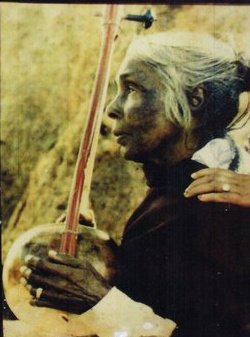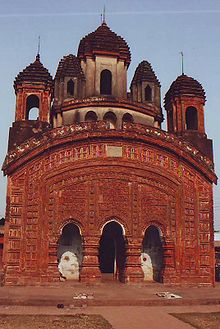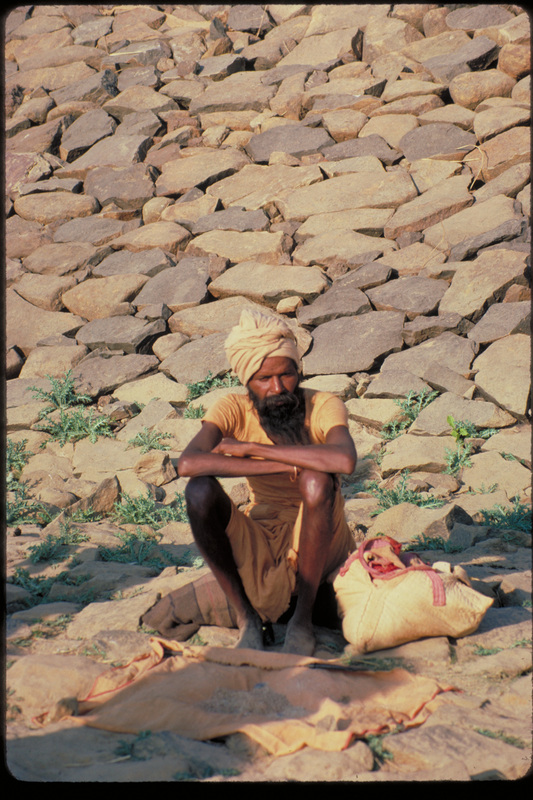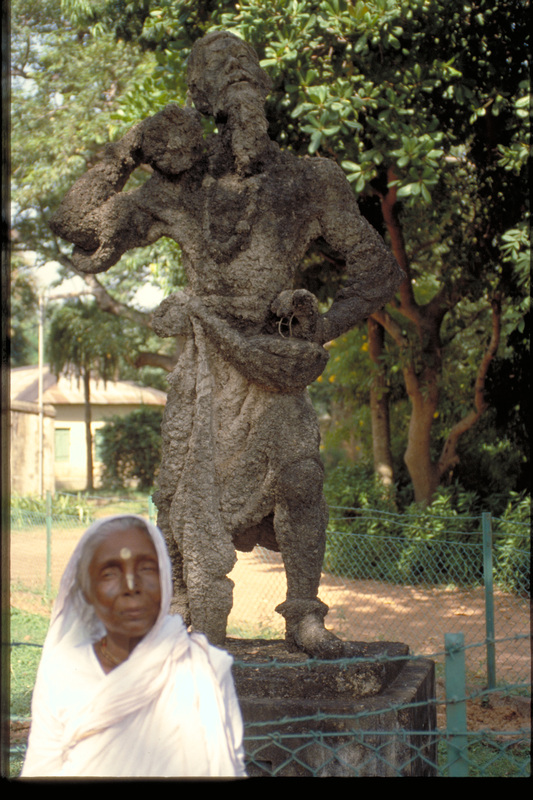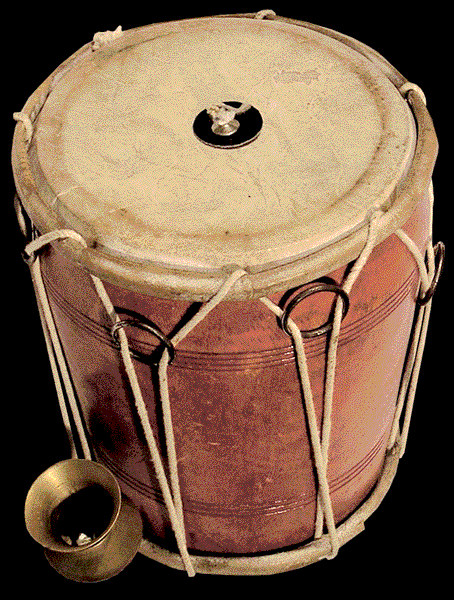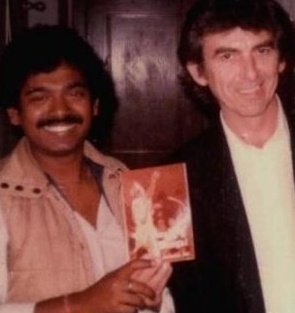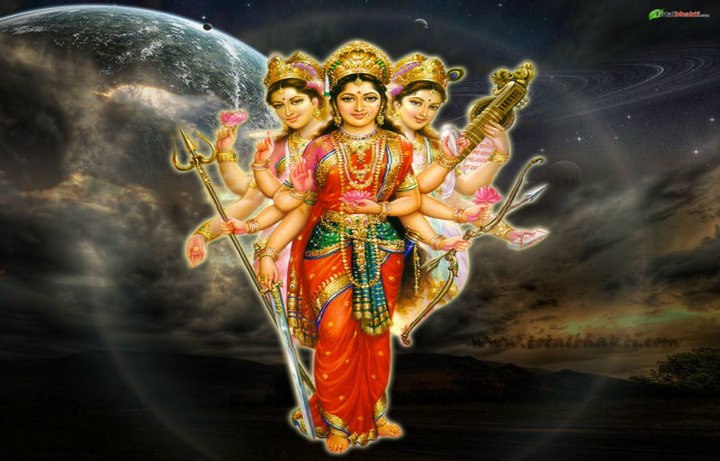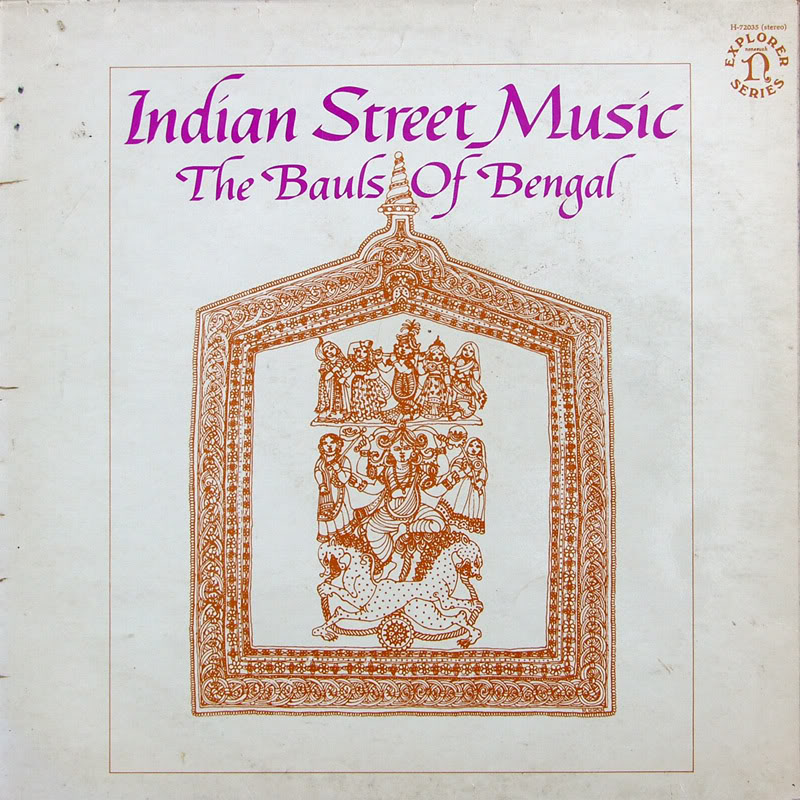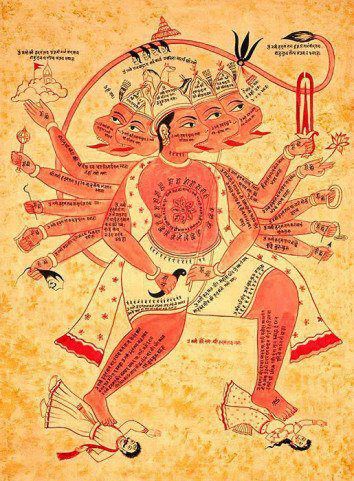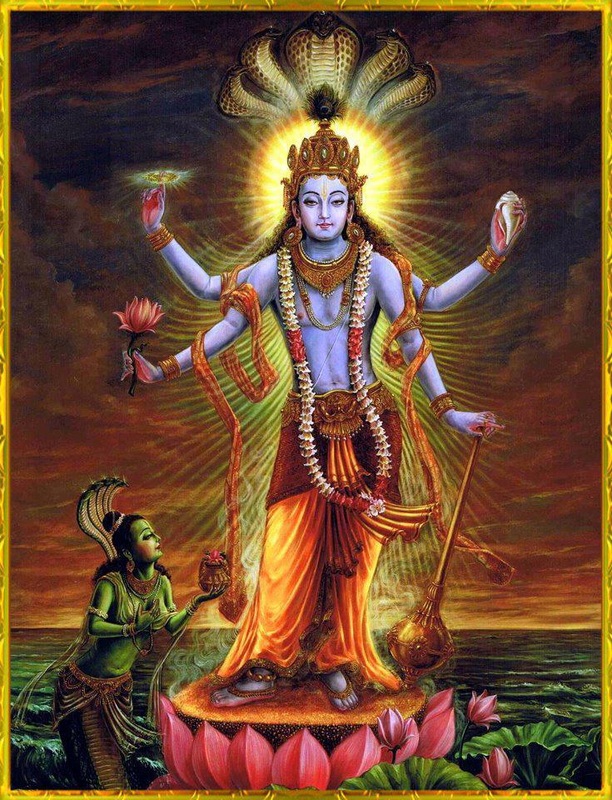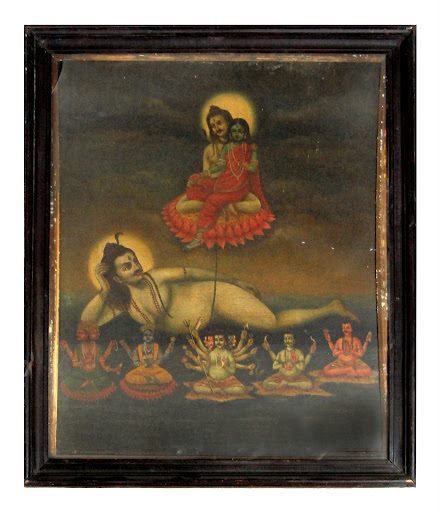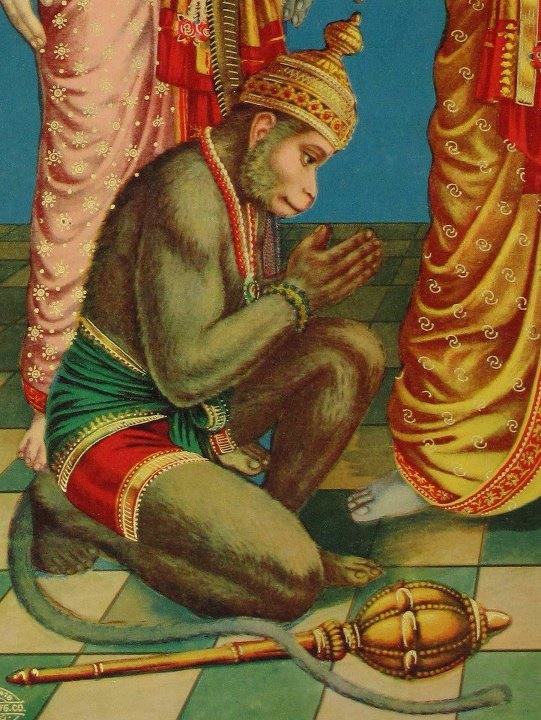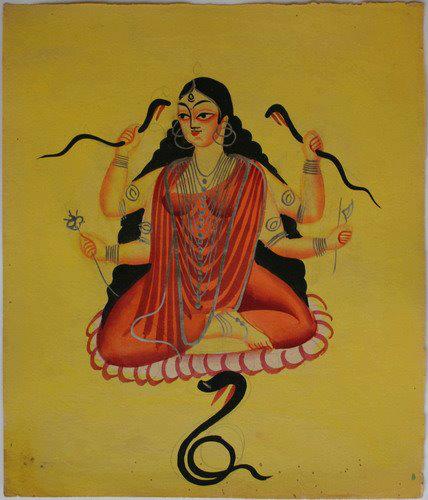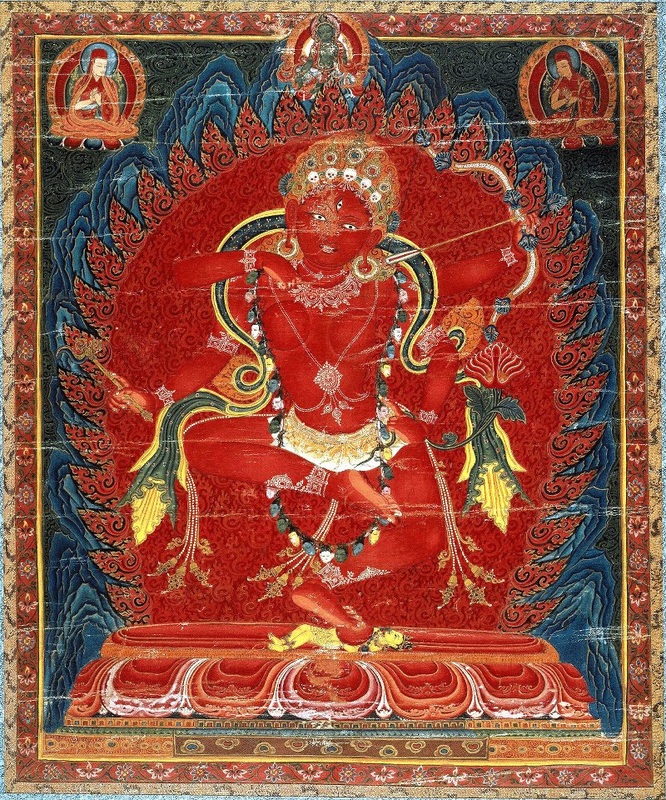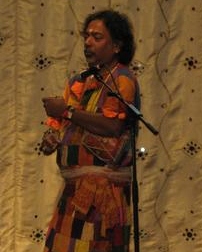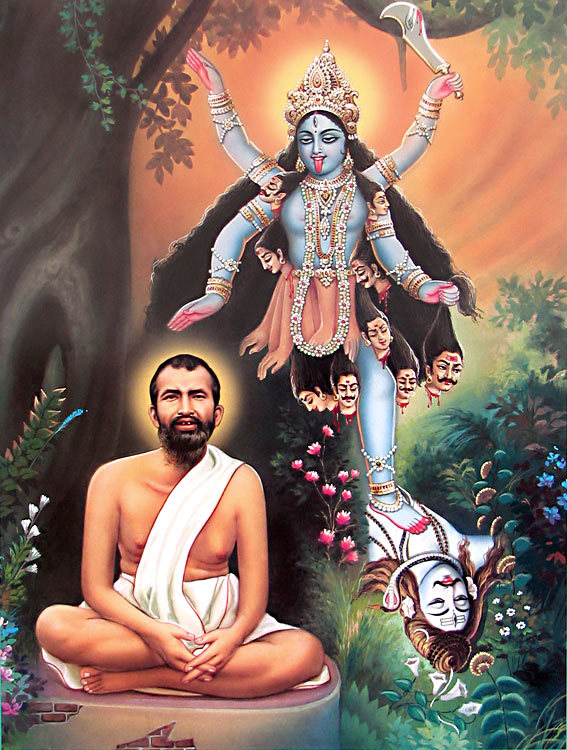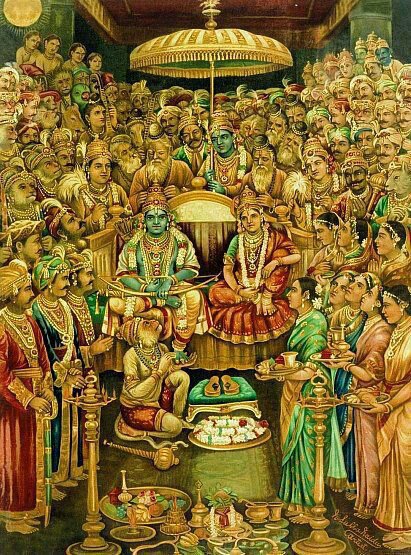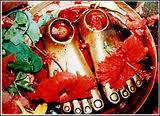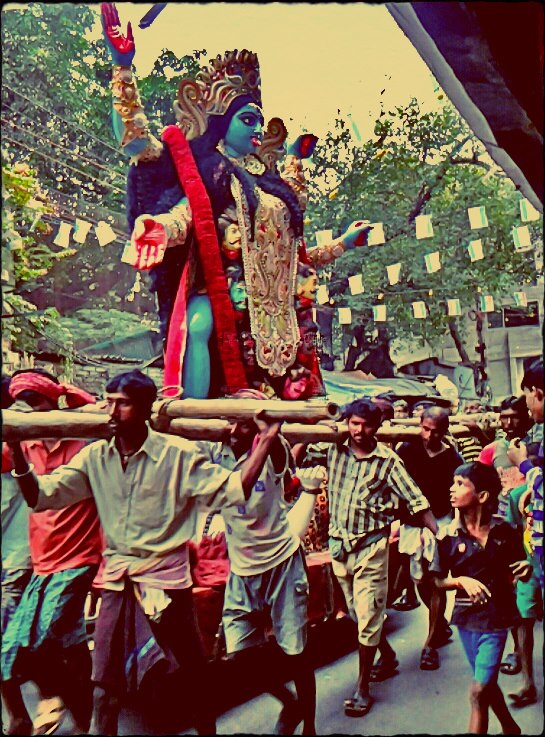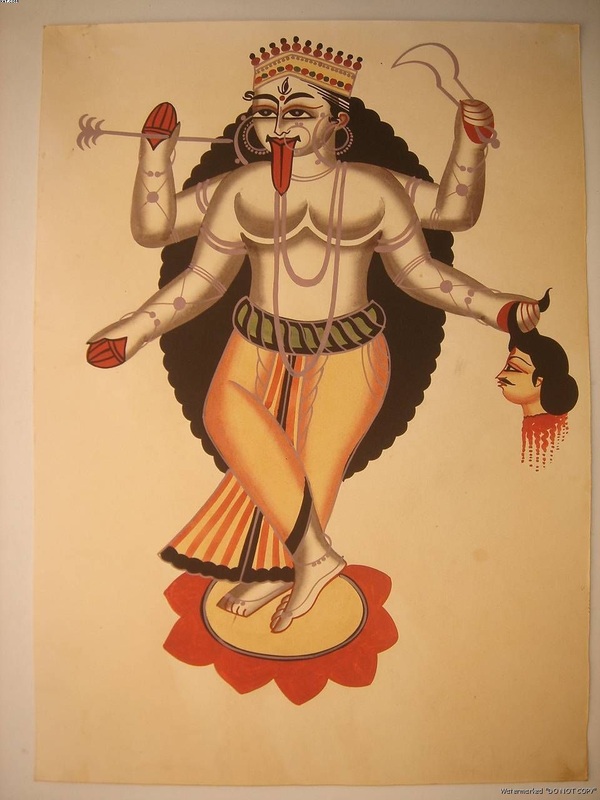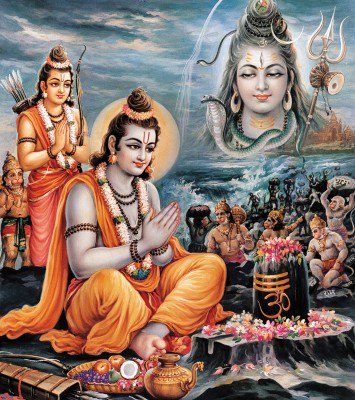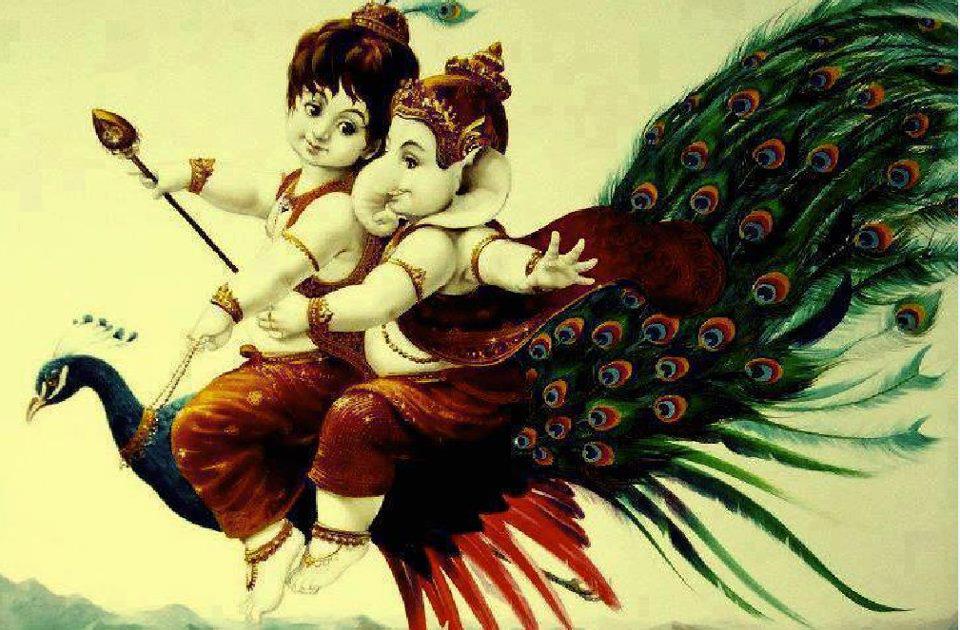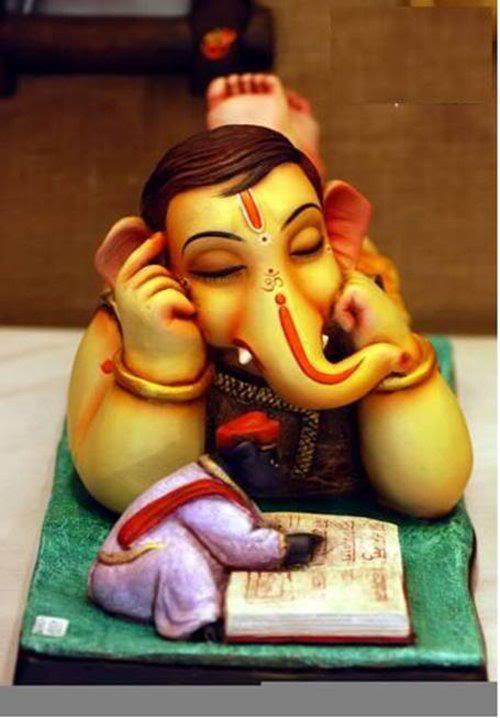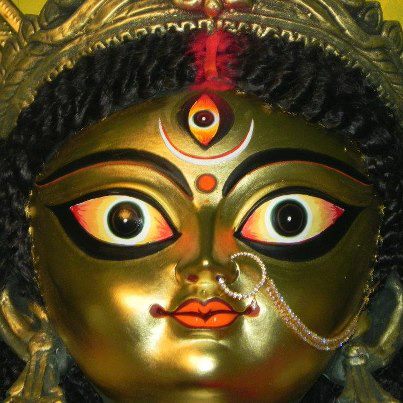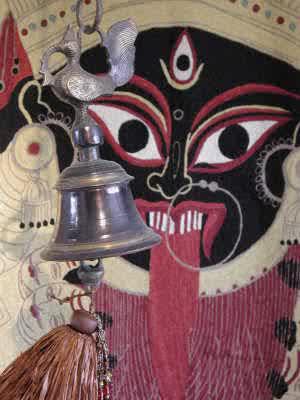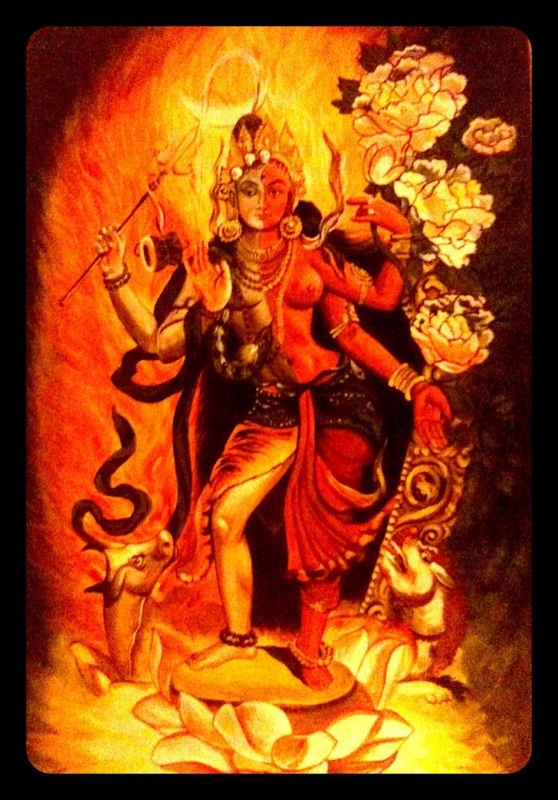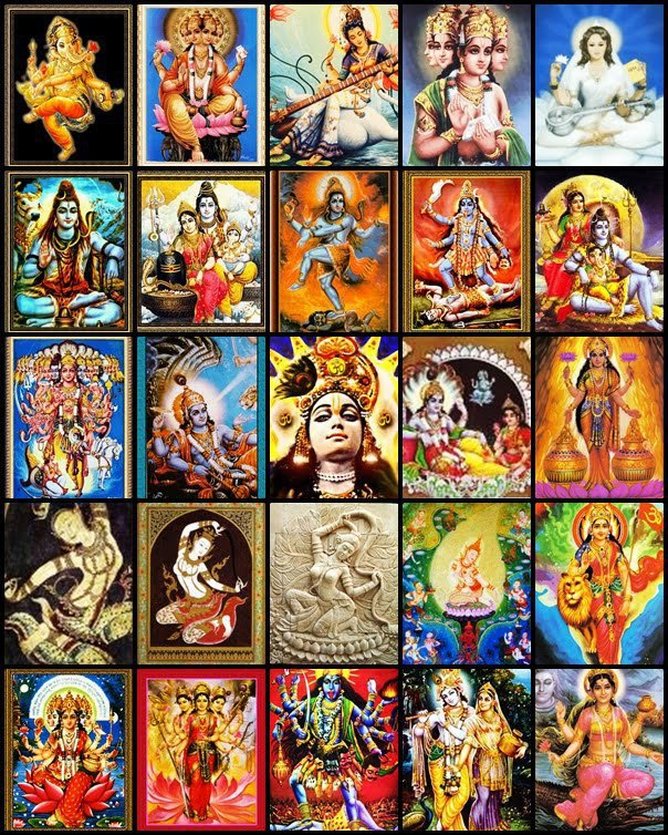
Let us do some mountain climbing that ends in the Kailash. ‘Himavant’ means having much snow. Thus Himavat is the God of Snow implying the Himalayan Mountains or the Himavat Mountains. It is also called the Abode of the Gods or Devabhumi. The Mahabaratha extols Himavat as the ruler of the Himalayan Kingdoms. The sum total of various versions makes Himayat the father of Sati or prominently known as Uma or Parvathi. His consort is Queen Mena, the daughter of Mount Meru.
HIMALAYAS:
The Himalaya Mountains are sacred. It is said that the highest of spiritual wisdoms of the universe are found in Himavat. Indeed, traditionally it is the only place in search for the highest truths in this planet. After all one must be nearer to Gods to wish for highest wisdom. Himalayas are a range of mountains immediately to the north of the Indian subcontinent. By extension, it can also refer to the massive mountain system that additionally includes the Karakoram, The Hindu Kush and other lesser ranges. Some of the world's major river systems arise in the Himalayas. The Himalayas have profoundly shaped the cultures not only of South Asia but the world. The Himalayan peaks are sacred in Hinduism and other break away faiths.
Some of the most sacred sites on pilgrimage to the Himalayas are Kailash Mansarovar, the Holy Mountain in Tibet, the Char Dhams Kedarnath, Badrinath, Yamunotri, and Gangotri. Remote Himalayan temples and shrines in different places in the Himalayas showcase diverse styles of temple architecture. Kailash Mansarovar Yatra dedicated to Lord Shiva,is one of the holiest places of Hindu for the pilgrimage in the Himalayas.
Char Dham Yatra comprises of four Hindu holy places located in the Uttarakhand. Badrinath is considered holiest temple among all the four pilgrimage places. Kedarnath shrine is also dedicated to Lord Shiva. Gangotri, the place for the origin of sacred river Ganga, is another important destination for the pilgrims. Vaishno Devi Shrine, placed in the state of Jammu and Kashmir, is dedicated to Goddess Vaishno Devi. These and many other Himalayan spots have been the source of legends and myths.
MENA,
is the queen of the highest mountains. She lives in the peaks in a golden palace tended by magical maidens. According to an interesting West Bengal myth, Mena was the devotee of Goddess Sati to whom she offered rituals. She gets a boon of 101 children, all boys except for one girl, named after the goddess. As the goddess reincarnated as a child with blue-black skin, flowers fell from the sky like rain. She was also named Kali and wished to have Shiva as the husband. This sees Himavat’s disagreement due to Siva’s homelessness and demeanour. The myth goes on to say that Himavat proved himself right as Kali lived a miserable life with Siva.
UMA:
For clarity, it is to be stated that Lord Siva’s consort is first known as Uma. She assumes various names such as Sati, Parvati and other names according to legends and Puranic circumstances. As Sati she is ‘the true or virtuous woman’. When Goddess Devi manifests as Uma, she is stated to be the daughter of Daksha, manasputra of Brahma. Here again Daksha opposes to Uma-Siva marriage. If Lord Siva is styled as Mahadeva, Uma is called Devi. Sati refers to being Himavat-Mena’s daughter. Ambika also refers to Uma with a confusion of being Rudra’s sister in some Puranas and as wife in the other.
Her name first appears in Kena Upanishad, describing the occasion of Brahma’s success on behalf of the gods. When Brahma appeared, the gods could not recognize him. Agni and Vayu could not ascertain Brahma’s strength. Finally Indra was commissioned. In the sky he came to a resplendent woman, Uma Himavat who tells them of Brahma. Here Uma is described as ‘divine knowledge.’
RAMAYANA:
In the Ramayana, Himavat-Mena’s daughter is stated to be Uma or Parvati. “To Himavat, the chief of mountains, the great mine of metal, two daughters were born in beauty unequally upon earth. The daughter of Meru, Mena her name, the pleasing wife of Himavat, was the slender waisted mother. Of her was born Ganga, the eldest and the second daughter, Uma. She, who wich in austere observances, having undertaken an arduous rite, fulfilled a course of severe austerity, adored by the worlds, the chief of the mountains gave to the matchless Rudra. These were the two daughters, Ganga the most eminent of rivers and Uma, the most excellent of the goddesses.”
HARIVAMSA PURANA:
This Purana describes Vishnu’s lineage. Also abbreaviated as Harivamsa, it is an appendix to the Mahabaratha and ascribed to Veda Vyasa. It froms the Adi Parva and is found as Harivamsa Parva and Bhavisyat Parva. “Himavat and Mena’s begat three daughters, Aparna, Ekaparna and Ekapatala. These three performed great austerities, such as could not be performed by gods.
Ekaparna fed upon one leaf; Ekapatala took only one patala but Aparna took no sustenance. So Her mother forbade her with her words u ma – ‘oh don’t’. Thus addressed by the mother, she came to be known as Uma in the three worlds. Uma was the eldest and most excellent, distinguished by the force from deep contemplation, she obtained Mahadeva for her husband.”
RUDRA SAMHITA:
The sage Shaunak expressed his desire to Suta to know the means to Lord Shiva in the era of Kali. So he describes the Shiva Mahapurana, the supreme of all Puranas which was narrated by Shiva himself and later retold by sage Vyasa with the permission of Maharishi Sanatkumar for the benediction of common man. It contains twenty-four thousand slokas and seven samhitas: Vidyeshar, Rudra, Shatrudra, Koti Rudra, Uma, Kailash and Vaviya.
Himavat and Mena cut across the story lines in Section IV of the Rudra Samhita. It is also called the Parvati Khanda of Siva Purana. Mena, Dhyanya and Kalavati visit Vishnu in Svetadvipa but get cursed by Sanaka. So they are born as mortals. Mena will marry Himavat and have Uma as her daughter. Dhanya will marry Janaka and have Sita as her daughter. Kalavati will marry Vrsabhana and have Radha as her daughter. Mena will attain Kailasa, Dhanya will attain Vaikuntha, and Kalavati will attain Goloka. Parvati will marry Siva, Sita will marry Rama, and Radha will unite secretly with Krishna.
Mena gives birth to a son named Mainaka who kept his mountain wings after Indra clipped the wings off the mountains. The gods ask the Goddess to incarnate on earth and be Siva's wife again. The Goddess agrees to incarnate as Parvati and marry Siva. The Goddess assumed the form of her baby child in front of Mena and began to cry in accordance with the ways of the world. The citizens rejoiced and there were great festivities. When Parvati wanted to perform penance she was forbidden by her mother Mena who said "O, no" which later became her name Uma.
Narada visits Himavat. Narada, by reading Parvati's palm predicts that she will marry Siva after performing penance to propitiate him. Himavat asks how Siva can take another wife after agreeing to be loyally married to only Sati. Narada tells Himavat that Parvati was formerly in her last incarnation Sati. Himavat tells Mena that Narada's statement on Parvati's marriage to Siva will come true. Himavat asks Mena to allow Parvati to do penance with marrying Siva as the object. Parvati has a dream that a Brahmin sage advised her to perform penance on Siva. Himavat has a dream that Siva disguised as a saint meets his daughter and they discuss Samkhya and Vedanta philosophy. Siva comes and does penance while Parvati serves him. Siva burns Kama with his third eye. Siva finally marries Parvati after quelling her pride and after being propitiated when she performs a great penance.
Siva, missing Sati, goes into Yoga trance to destroy his misery. From the sweat of Siva falling on the earth Bhauma or Mars is born and he acquires the status of a planet by Siva's grace. Himavat meets Siva while he is performing penance on the Himalayas. Siva asks Himavat that none disturb his penance on the Himalayas. Himavat agrees but asks Siva's permission for his daughter Parvati to serve him. Siva asks that Parvati be left home when Himavat visits him daily. Siva says a young lady is a hindrance to ascetics. Parvati argues with Siva on the greatness and superiority of Prakriti.
Siva replies he is destroying Prakriti by his penance. Parvati declares she is Prakriti and Siva is Purusha. Parvati's words were based on Samkhya philosophy, while Siva upheld the Vedantin's point of view. Siva allows Parvati to render him devotional service every day. Parvati and her maidens approach Siva everyday for serving him. Siva wished to make Parvati his wife when the last seed of ego goes away from her and when she herself performs a penance. Indra and the other gods send Kama to tempt Siva to produce a son through Parvati because the demon Taraka was harassing them. Siva reduces Kama to ashes.
The gods complain to Brahma about harassment by Taraka. Brahma says only Siva's son can kill Taraka. Brahma tells the gods to try to get Siva to marry Parvati. Brahma tells Taraka to rule over earth and leave heaven to the gods. Taraka descends to earth and rules there with Sonita as his capital.
Indra asks Kama to make Siva desire Parvati as his wife and produce a son to kill Taraka. Kama, Rati, and Spring spread their love illusion around the penance-grove of Siva. Even the forest sages caught the emotions of love. But Siva continues his penance undisturbed by Kama. Kama shoots his love arrow at Siva while Parvati approaches him. Siva describes Parvati's physical beauty to her. Siva puts his hand within Parvati's garment and desires to embrace her.
Parvati lays bare some parts of her body and smiles at Siva. Siva, then realizing Kama's delusion, resumes detachment and forbids Parvati to sit on his couch. Siva sends a flame of fire from his third eye which reduces Kama to ashes. The gods become miserable. The gods ask Siva to bring Kama back to life. Siva says that Kama will be bodiless until he is reborn as Pradyumna, the son of Krishna and Rukmini.
When Siva had vanished after burning Kama, Parvati became extremely agitated due to his separation. Narada tells Parvati that Siva will take her as his wife after she has been sanctified by austerities. Narada tells Parvati to repeat the mantra Aum Namah Sivayah to propitiate Siva. Himavat approves of Parvati's penance. Parvati acquired the name Uma since her mother Mena forbade her to go to the forest for doing penance. Finally Parvati gets Mena’s mother's permission. In the summer fires surround her, in the winter she remained in water. She bore all weather with equanimity.
She was called Aparna since she even left eating leaves. For three thousand years she did penance meditating on Lord Siva. Mena tries to get Parvati to quit her penance. Parvati says that Siva can be easily served through penance. The whole universe became heated by Parvati's penance. The gods ask Siva to marry Parvati. Siva promises to remove the sufferings that Taraka is causing the gods. Parvati says she is born to help the gods defeat Taraka and that Siva must go to Himavat requesting to marry her.
Hence Parvati wants the marriage rites to be properly celebrated. Siva says all visible things are perishable and that they two have created the universe. Siva says he won't visit Himavat as a mendicant and beg to marry his daughter Parvati. Parvati says that he is the cosmic soul and she is the cosmic nature. Parvati still insists that Siva beg Himavat for her. Siva finally agrees to imitate the worldly conventions and vanishes to Kailasa.
Parvati returns to Himavat and Mena's house repeating Siva's name. The parents are delighted in reunion with their daughter Parvati. Siva, in the disguise of a dancer, sings and dances while blowing the horn and playing on the drum. But only Parvati realizes the dancer as Siva. The mendicant dancer shocks Mena by requesting the hand of Parvati. But the dancer mendicant becomes red hot to touch and none of Himavat's attendants can drive him away. The dancing mendicant takes the cosmic forms of Vishnu, Brahma, Surya, Siva with Parvati, and then a shapeless mass of splendor. But Himavat, deluded by Siva's magic, still rejects his request begging the hand of Parvati as alms. The gods say that Himavat must give Parvati in marriage without his full concurrence in order for this mountain of gems to remain on the earth.
Mena opposes Parvati's marriage to Siva. Siva mentally summons the seven sages. Siva asks the seven sages to convince Himavat and Mena of the advisability of Parvati's marriage to Siva. The seven sages tell Himavat that Siva is the father of the universe and Parvati is the mother of the universe. Hence they request Himavat to give his daughter Parvati to Siva. The seven sages send Arundhati to convince Mena. Vasistha tells Himavat that Parvati is the wife of Siva in every birth in each Kalpa. Vasistha mentions the King Anarayana who saved his kinsmen by giving his daughter to a Brahmin. The Sruti says that one should forsake a single entity for the sake of a unit.
Finally, Himavat sends a betrothal letter to Siva. Himavat invites all the mountains and rivers to attend the marriage of Siva and Parvati. Visvakarman creates different abodes for the residence of the gods and others. Siva accepts the betrothal letter proposing marriage to Parvati. Siva asks Narada to invite all the gods to the marriage. Himavat tells Mena that Siva has many forms and that she wrongly became excited upon seeing a distorted form. Mena feeling that Siva would make an awful bridegroom continues to oppose Parvati's marriage to Siva.
After Vishnu speaks about Siva as the Supreme God to Mena, she declares that she will approve the marriage only if Siva assumes a lovely form. Siva shows his wonderful cosmic form to Mena. Mena charmed by Siva's lovely form agrees to the marriage and apologizes to Siva for her harsh words. All the ladies forsook their activities to see Siva's fascinating form.
Siva and the ganas and gods finally arrive. Mena saw with pleasure Siva who was served by all the gods. Siva now appears with one face and is beautiful in every detail. Himavat caused the thread investiture rite for Siva and Parvati. Then the gods entered the inner apartments in Himavat's palace. Parvati was bathed and bedecked with ornaments. An astrologer, Garga, sets an auspicious marriage time. Lights were ceremonially waved in front of Siva and Parvati.
Narada says Siva is formless Brahman. There was an exchange of gifts. Then Himavat gave Parvati to Siva. Brahma spills semen while looking at Parvati's legs. The Gods ask Siva to spare Brahma. Thousands of sages called Valakhilyas sprang up from drops of Brahma's semen. They do penance and become disciples of the sun.
Brahma performs the ceremonial wedding rites. The garments of the bride and bridegroom were tied at the beginning and untied at the ending of the marriage ceremony. The couple then entered the bed chamber with smiling pleasure. Sixteen celestial goddesses and ladies arrive to advise and bless Siva's marriage to Parvati. Siva rebukes the celestial ladies for speaking so trivially to him as though he was a mere ordinary mortal getting married.
Rati asks Siva to restore Kama's life. Siva's glance restores Kama to life. Himavat arranges to feed the visitors. Siva goes to bed to rest. The gods and sages inform Himavat about their departure. After a few days Siva leaves with the gods. Mena asks Siva to protect Parvati. A Brahmin lady instructs Parvati in the duties of a chaste wife. A chaste wife attains salvation by serving her husband as her lord on par with Siva. Parvati leaves her parents to join Siva. Siva and Parvati sport with joy on Kailas Mountain.
Hara Hara Mahadeva
(draft Gods, Goddesses, Minor Deities and Sages) by Yogi Ananda Saraswathi
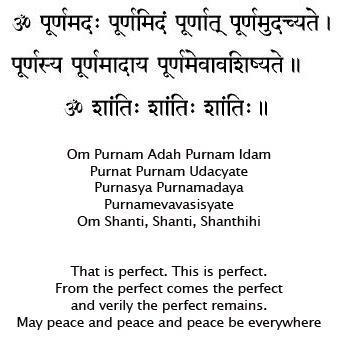
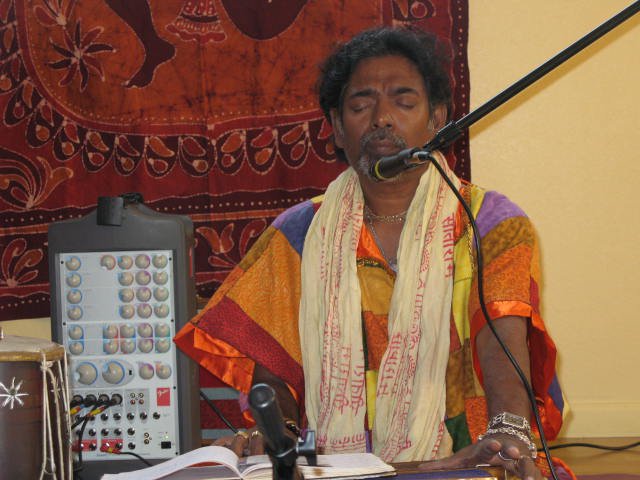
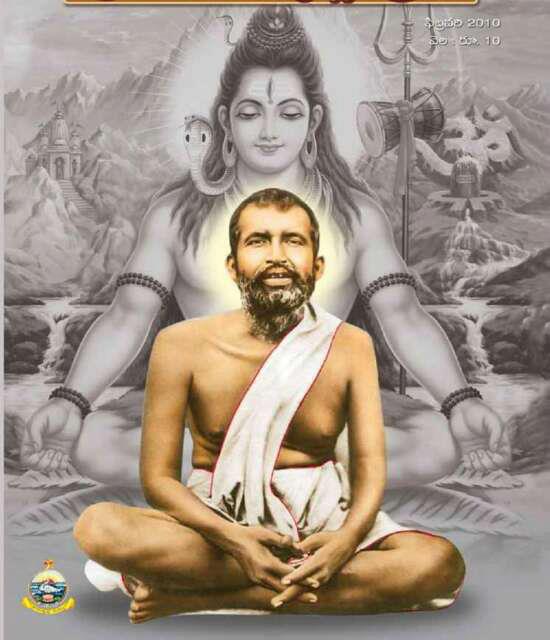
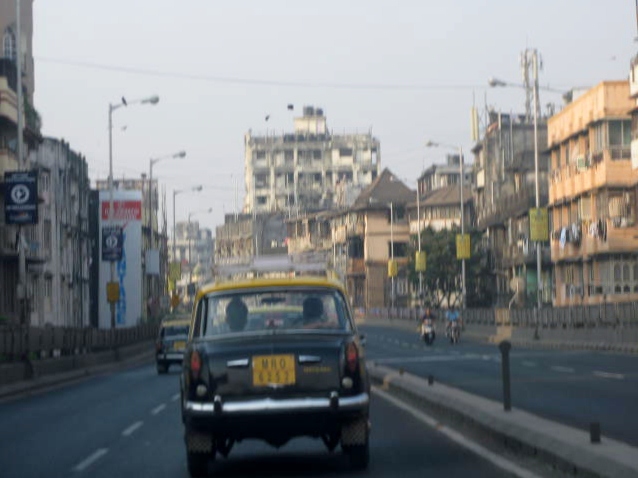
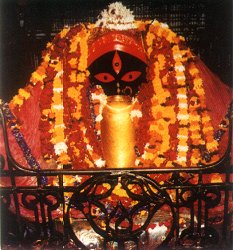
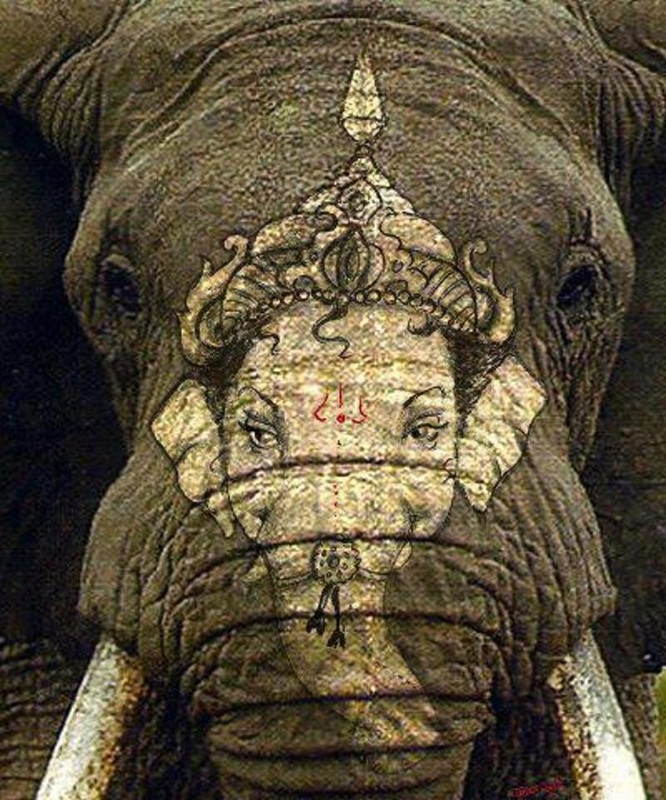
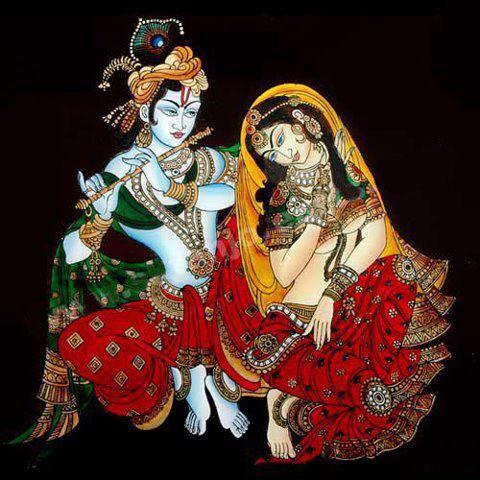
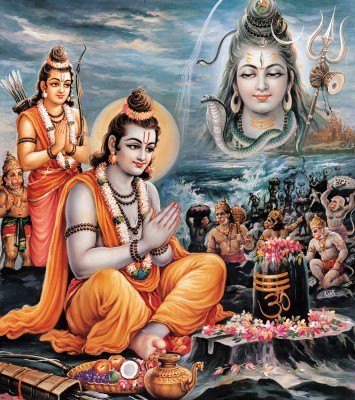
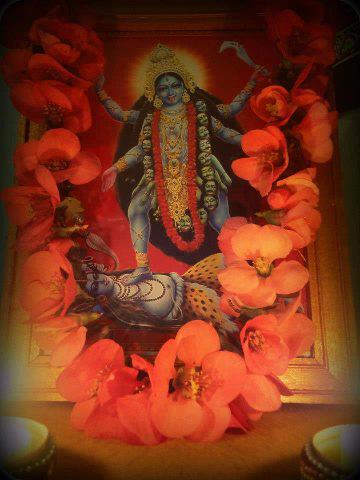
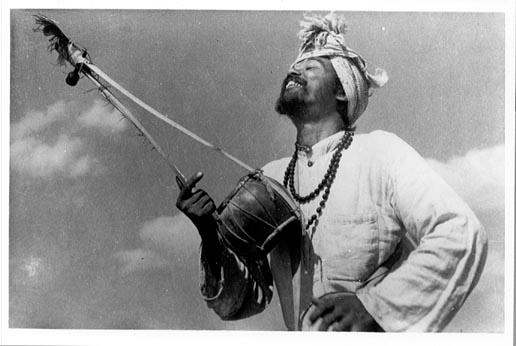
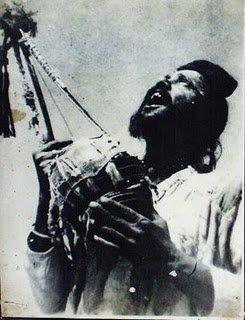
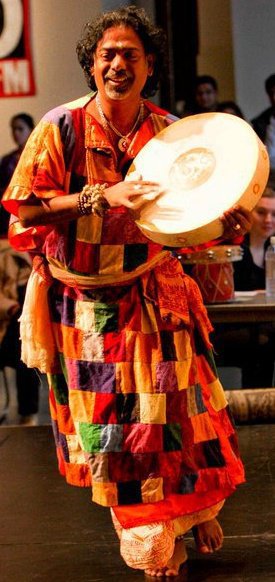
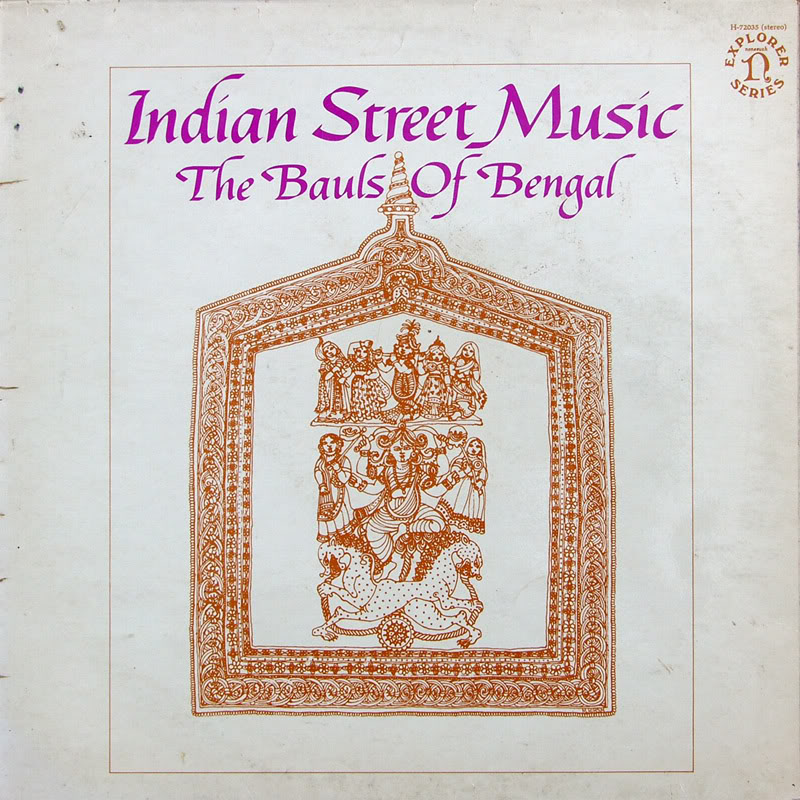
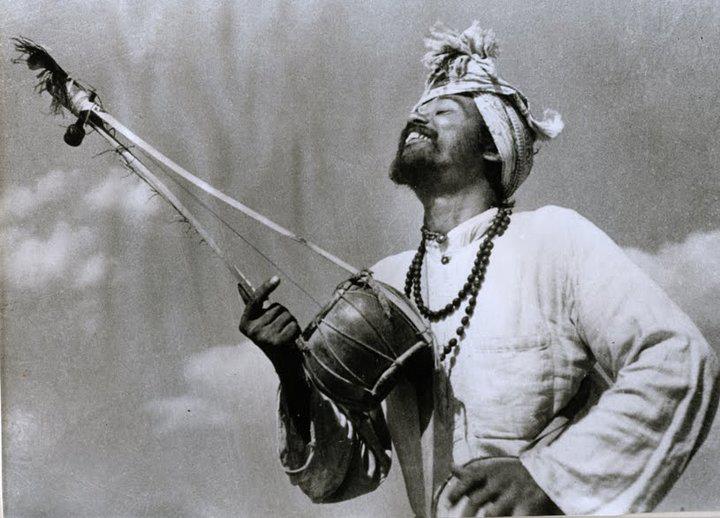
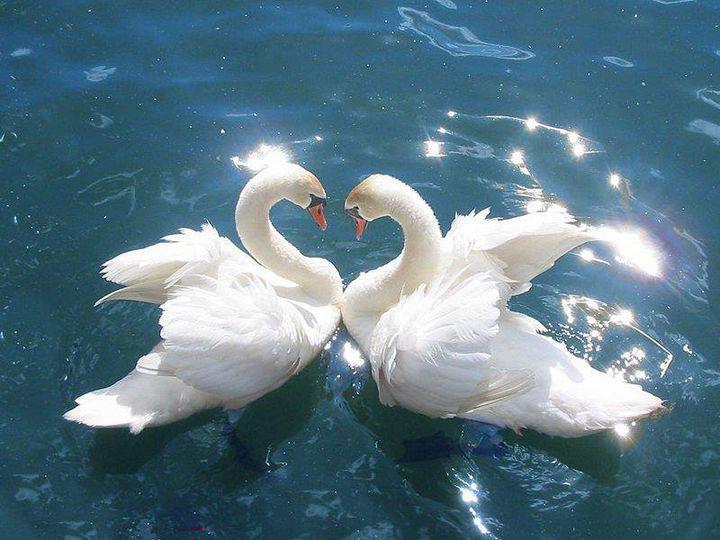
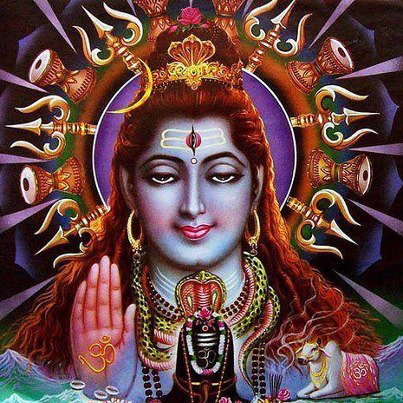
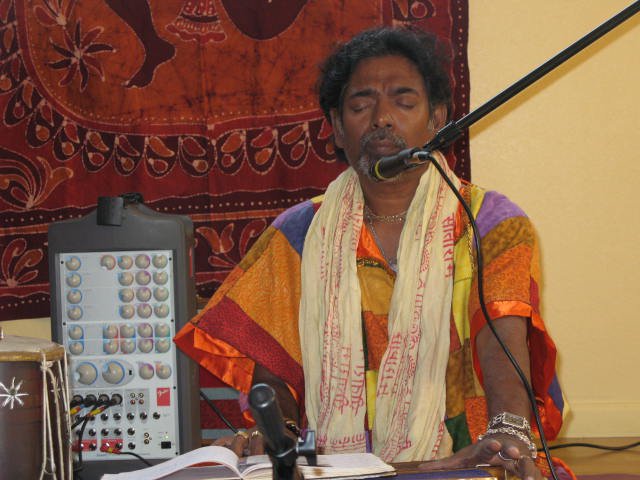
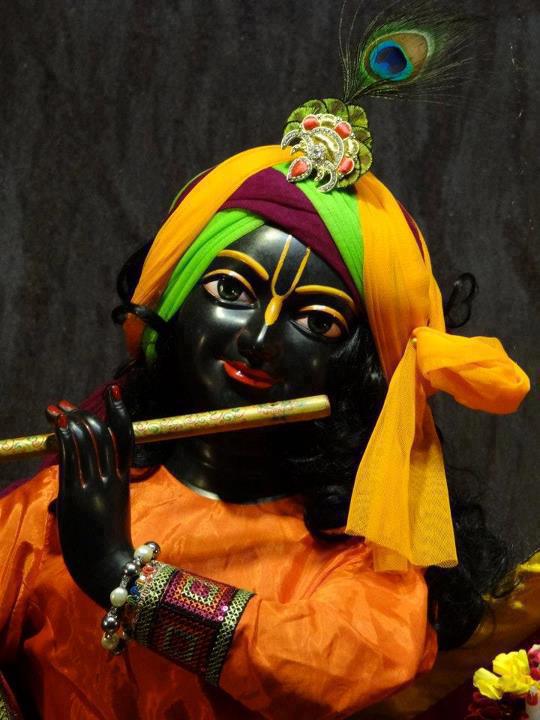
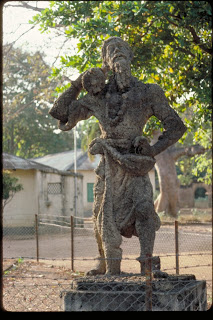
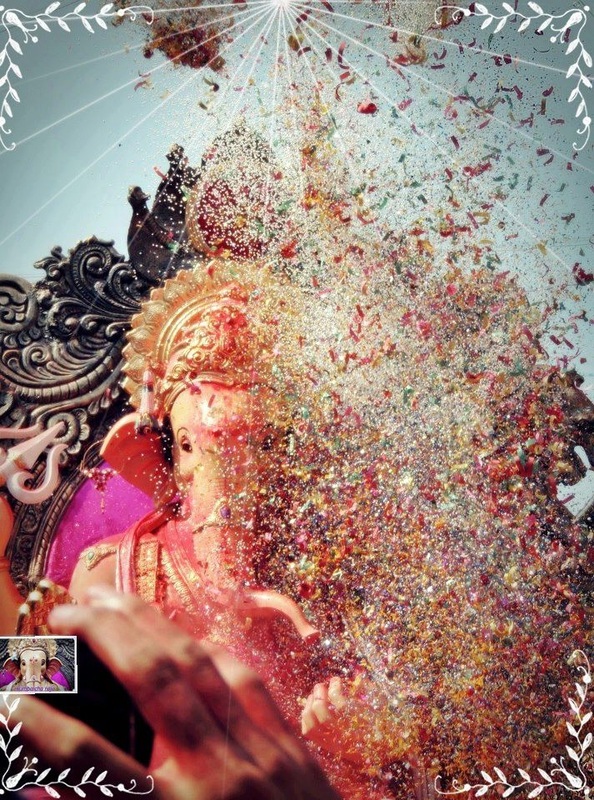
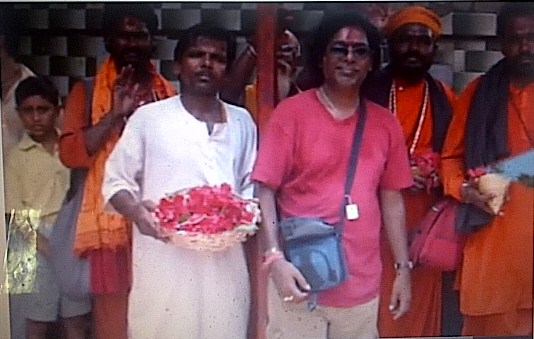
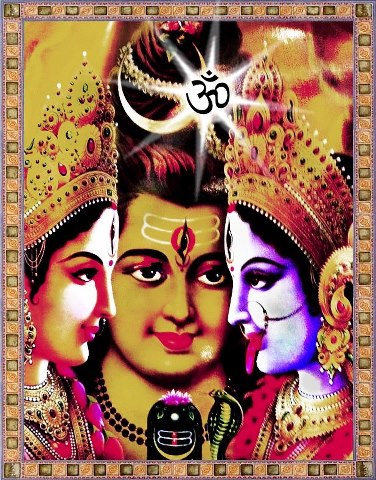
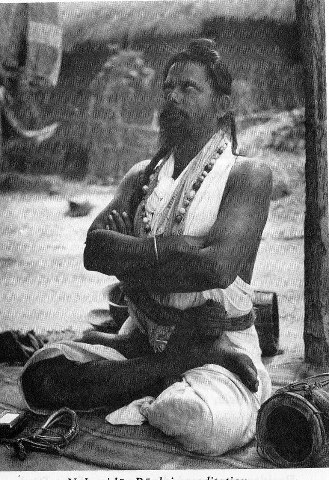
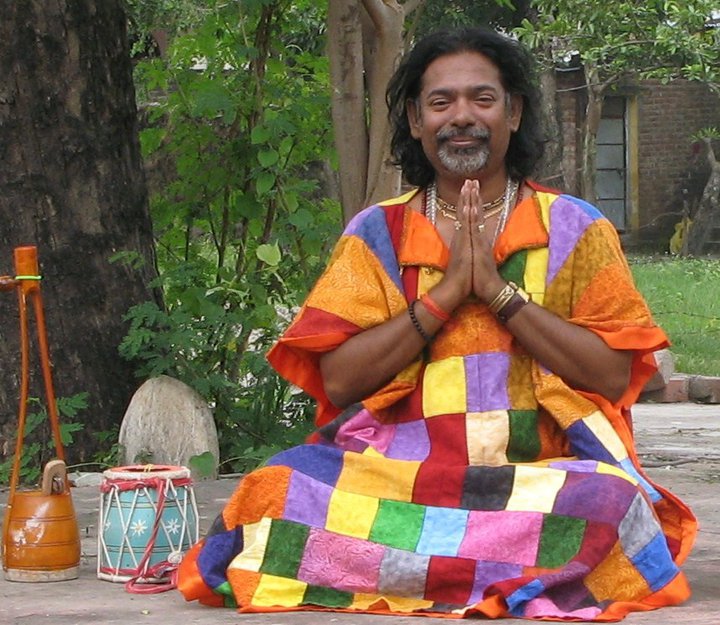
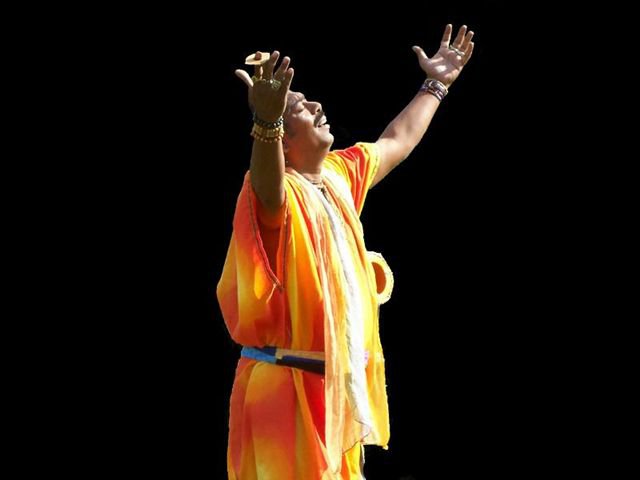
 RSS Feed
RSS Feed
